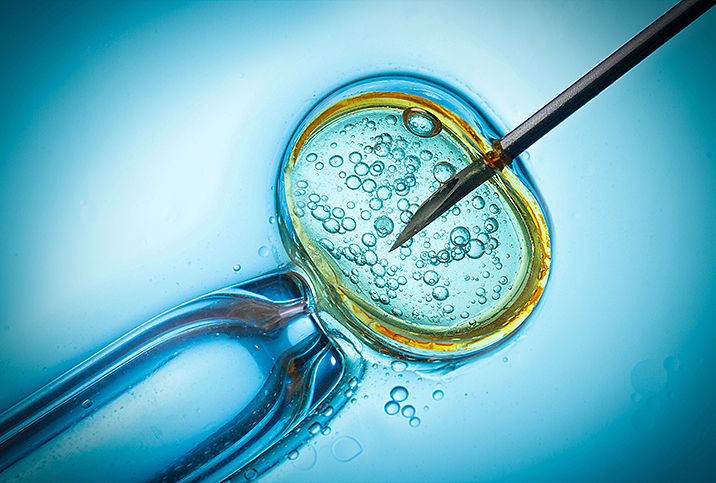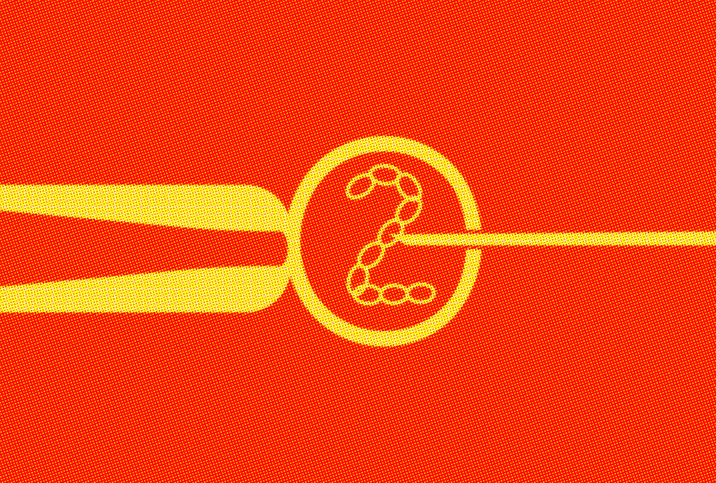Needle Averse? You Have IVF Options

Most of us have heard the stories (or experienced it ourselves): friends or family members injecting themselves with fertility drugs in the hopes of becoming pregnant. What you may not know is for needle-adverse patients, there are other ways.
Conventional in vitro fertilization (IVF) can be invasive and extremely difficult for people who can't tolerate needles. Thankfully, there are alternative options available—including oral pills and even nasal sprays.
Regardless of the type of IVF you decide to undergo, there are many factors to consider before opting for treatment, such as your age, lifestyle and underlying health issues. IVF can be very expensive, especially if more than one cycle is needed.
How does needle-free IVF work?
Conventional IVF involves daily injections and blood draws, which can be unbearable for people who are needle-phobic. Often, individuals have to administer intramuscular injections, which deliver fertility medication directly to the muscle—and these relatively larger needles can be intimidating to some. In comparison, needle-free IVF provides a gentler approach that can provide great results for many patients.
"Needle free IVF works very similarly to conventional IVF but without all the pain from needles," explained Apurva Shah, M.D., obstetrician-gynecologist at Women's Wellness Associates at Saint Vincent Hospital.
"Oral medications are used to stimulate follicular formation," Shah continued. "Urine and saliva tests are then used to monitor hormone levels and then at the optimal hormone levels, a nasal medication is administered and ovulation is triggered."
"Part of the concept of minimal stimulation IVF—needle free IVF—relies on the use of pills (clomiphene or letrozole)," added Cindy M. P. Duke, MD, Ph.D., FACOG, founding physician of the Nevada Fertility Institute.
These pills "stimulate the hypothalamus and pituitary glands to talk(by making FSH and LH)to the ovaries to produce eggs," Duke continued. "It is not new and this is, in fact, how the earliest forms of IVF were conducted." (The first IVF baby was born in 1978.)
The benefits
Needle-free IVF is suitable for the majority of people because it's a gentler approach that generally presents fewer side effects like weight gain and bloating. It's great for people who struggle with self-administering medication. Plus, there is less pain and discomfort since needles aren't used.
Another reason why needle-free IVF is appealing is it typically costs less than conventional IVF. With conventional methods, you can expect to pay around $12,000 per cycle. Needle-free IVF is a fraction of the cost, with prices ranging from $5,000 to $7,000. That's a big difference, especially when multiple rounds are needed.
here
Additionally, some people are interested in more natural and holistic fertility options, and needle-free IVF provides that. Fewer medications make it easier on the body, which can reduce the risk of ovarian hyperstimulation syndrome (OHSS), a condition that occurs in women who are sensitive to excess hormones. This also makes needle-free IVF suitable for people with polycystic ovary syndrome (PCOS), who are already at a slightly higher risk of OHSS.
The chances of conception
With conventional IVF, most patients will see a success rate between 20 to 35 percent per cycle, but this does decline with age and with each unsuccessful round.
The Centers for Disease Control and Prevention (CDC) reports approximately 1.9 million babies born each year were conceived through IVF. However, it's important to note the chances of conceiving through IVF varies depending on the clinic and the options that are available.
"There are no high quality studies comparing the chances of conception between needle free and conventional IVF," Shah said. "However, current evidence suggests similar birth rates with needle free IVF versus conventional IVF. Consideration has to be given by the patient's care provider to various socioeconomic factors, in addition to the patient's personal and medical history to select the right candidate for optimal outcomes."
There is hope that needle-free IVF could become widely available in clinics around the world and recommended to many patients as a gentler alternative. However, some fertility specialists have reservations.
"The levels of FSH and LH produced with needle-less IVF are usually not as high as the ones achieved by giving the FSH and LH through injections," stated Cesar Diaz-Garcia, M.D., Ph.D., ACOG, fertility specialist and surgeon at London Gynaecology.
"This means that if a patient only has a little number of follicles, the results could be equivalent to those of conventional IVF. If a patient has a lot of follicles, it is usually more cost-effective to produce more oocytes, because this is one of the parameters that correlates with higher success rates," he explained. "Therefore, a conventional protocol is generally better."
Who shouldn't use this method?
Most patients are suitable for needle-free IVF because it contains fewer medications and thus, fewer risks are involved. The only factor that would not make someone a suitable candidate is if they have an allergy to the oral or nasal medications. For this reason, you should discuss any allergies with your fertility doctor before deciding the best option for you.

















